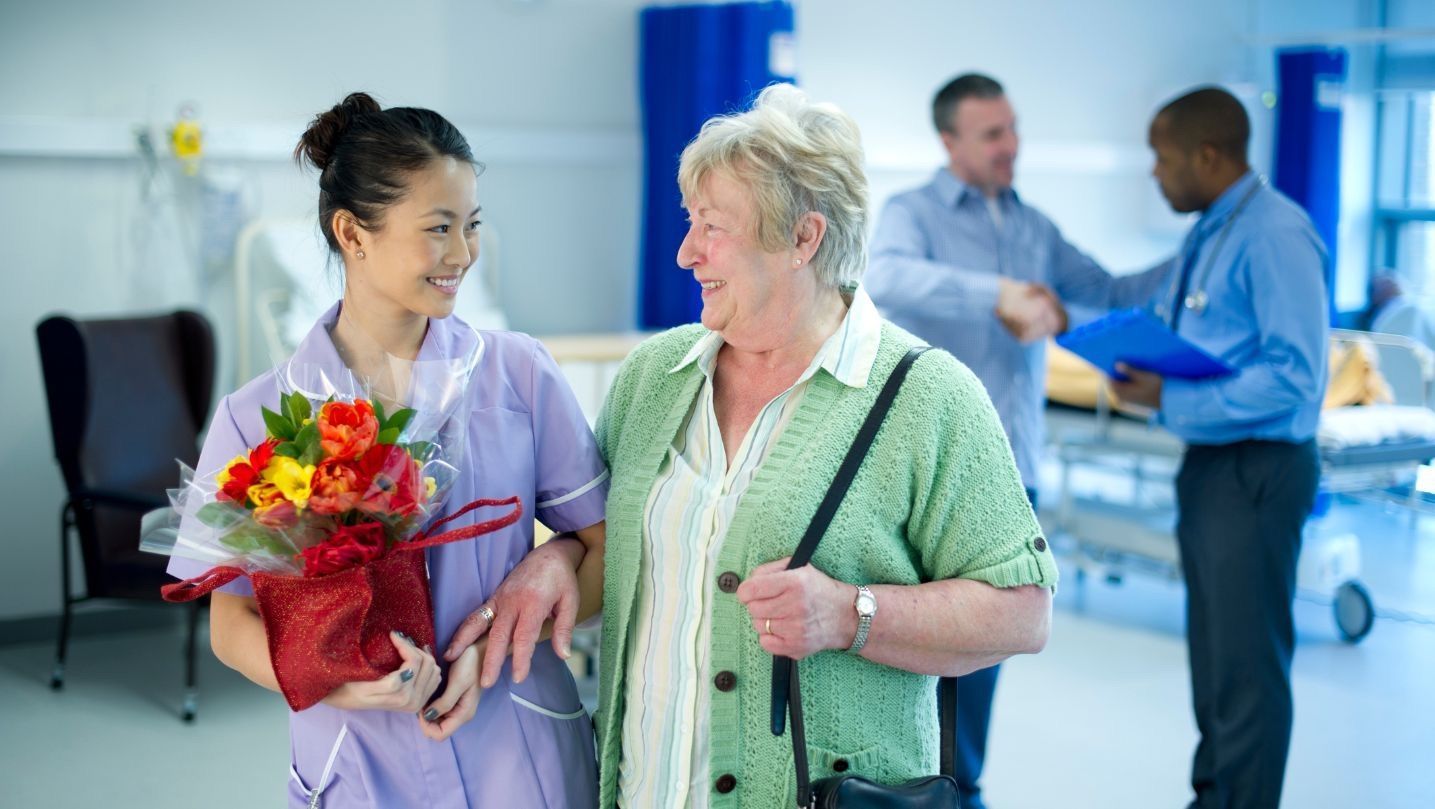Are You or a Loved One Coming Home From the Hospital?
Coming home from the hospital may be more dangerous than you think, but Comforting Home Care by Phoebe Transitions℠ program can help. “One in five Medicare beneficiaries is re-hospitalized within 30 days of discharge; one in three is readmitted within 90 days,” according to Forbes. “More than 20% of older Americans suffer from five or more chronic conditions that account for 75% of total Medicare spending—mainly due to high rates of hospital admission and readmission.”
Proper transitional care is crucial for the patient’s safety and well-being and decreasing the likelihood of readmission to the hospital.
8 Tips to Transition From Hospital to Home
- Ask Questions
– Being in the hospital can be exhausting and overwhelming, with nurses constantly checking your vitals and entire teams of doctors coming into your room asking questions and giving information about your condition. Then, when You’re discharged, you’re barraged with a lot of information and instructions. But remember, you have every right to ask as many questions as many times as you need to understand your condition, medications, etc. Unlike when you get home, you are surrounded by doctors and nurses, so ask away and maybe even write the information down.
- Recruit a Trusted Friend, Family Member, or professionally trained Caregiver – You may not be at your best after a hospital stay, and the medical jargon doctors and nurses sometimes use can be confusing. Furthermore, you may need help getting home or need additional support when you do get home. So, there is no shame in recruiting a trusted friend, family member, or caregiver to help you.
- Understand Medications
– “Medication errors [are] a big problem after hospital discharge,” according to
Harvard Medical School. Experts say some of this problem stems from the health care system; however, “patients can also do a lot to prevent post-discharge medication errors.” For example, bring a list of your medications to the hospital, ask about medication changes or side effects, use a pillbox or chart, etc.
- Understand Restrictions – If you’ve battled an illness, were diagnosed with a disease, or had surgery, life after you’re discharged may look a little different. Before you leave the hospital, make sure you understand any restrictions – how much you can lift, diet, sexual activity, etc.
- Know What to Look For – Ask what kind of problems, side effects, or symptoms you need to watch for once you get home and report any issues to your doctor immediately.
- Keep Records – Gone are the days when we could relegate our health care to our family doctor. Today, we need to be advocates (or have someone serve as our advocate) for our own health care. Keep a document of your health history, including physician’s names, test results, medical treatments, medications, etc.
- Know What Comes Next – Before departing the hospital, ensure you know what comes next, such as physical therapy or follow-up appointments. You may also want to ask for additional resources or support groups to help you deal with life changes or recovery needs.
- Create a Safe Home – Before leaving the hospital, you (or your caretaker) need to understand what you’ll need when you get home to ensure you’re coming home to a safe environment. For example, you may need some assistance for daily living activities or safety features, such as a raised toilet seat, grab bars, a hospital bed, etc. If you’re an older adult or mobility is an issue, your home should be free of debris and clutter, be well-lit, etc.
Comforting Home Care by Phoebe Can Help Your Loved One Transition From Hospital to Home
Home care provided by HHAs and CNAs can directly contribute to reduced hospital readmission rates by…
- Improving compliance with discharge instructions
- Monitoring proper dosage and timing of medications
- Motivating patients to participate in rehabilitation exercises
- Advising patients to avoid restricted activities
- Reducing stress for families and patients and improving rehabilitation
- Surveying for home hazards, specifically fall prevention
Call us today at 610-625-5206 to learn more about Comforting Home Care by Phoebe Transitions℠ program, or connect with us online.












